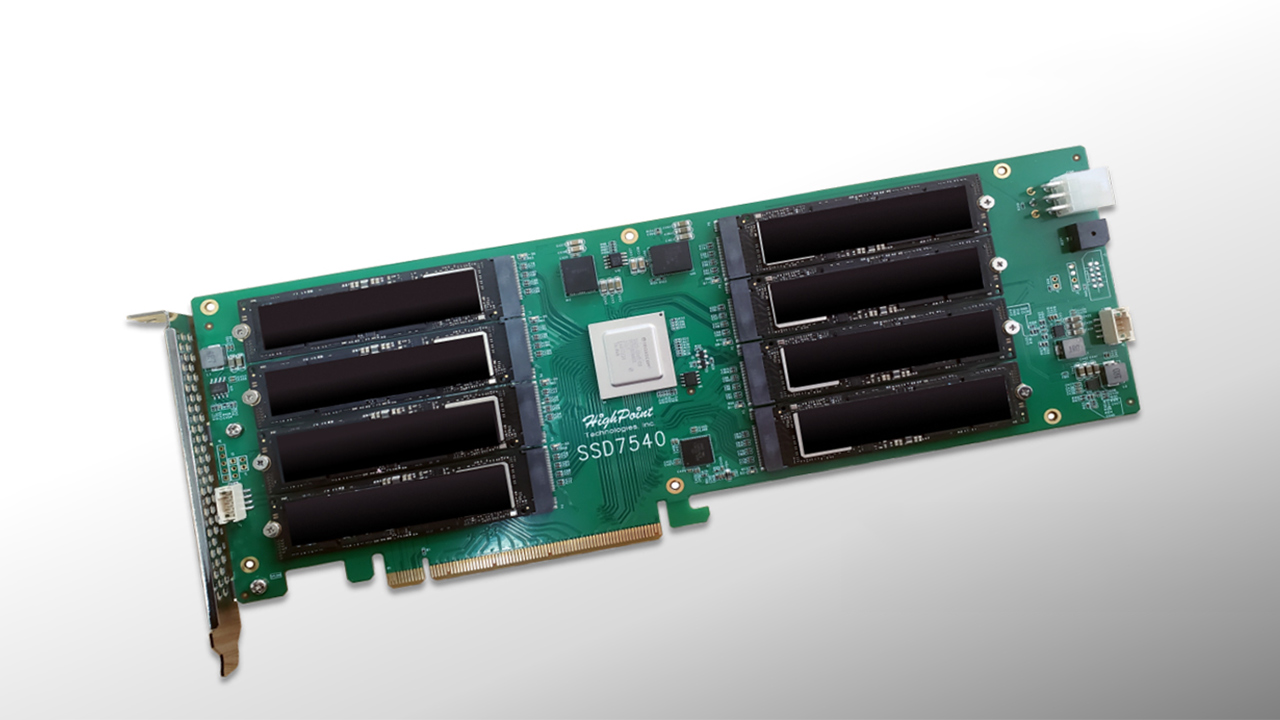
Earlier this morning, HighPoint announced that its SSD7540 RAID Add-In-Card (AIC) is qualified for use with LiquidCool Solutions' immersion-cooled rack servers (and immersion-cooled server platforms in general). For those unfamiliar, immersion cooling is a version of liquid cooling where the entire PC (or most of it) is submerged in a non-conductive liquid, typically mineral oil, for stylish aesthetics, more efficient cooling, or both. In the data center space, where you often stack the equivalent of several fully-decked systems on top of each other, immersion cooling becomes a pretty viable solution for cooling servers.
While this is a definite win for HighPoint, considering the market its technology targets, we should note that immersion cooling typically works with most hardware without any real issue. Building and maintaining a PC using immersion cooling can be prohibitively expensive, particularly at home. However, as long as the liquid is non-conductive, your hardware shouldn't have any issues inside of it— though you'll get the best results removing fans since they are designed to push air instead of liquid.
So, while this is the first time the NVMe Gen 4 HighPoint SSD7540 RAID AIC has been used with immersion cooling (to our knowledge), there was no reason to think it wouldn't work before it was certified. It is still nice to have it tested and validated in action, particularly since, according to its official product page, the HighPoint SSD7540 RAID AIC still costs a hefty $1,099.
Earlier this year, we reviewed a newer PCIe Gen 5-based HighPoint AIC, the HighPoint Rocket 1608A. For those unfamiliar with HighPoint's track record, HighPoint's RAID AICs allow for dramatically higher RAID speeds when using an array of SSDs. Testing with NVMe Gen 4 drives on that Gen 5 HighPoint card, we managed to achieve speeds of up to 56 GB/s — far faster than any currently existing single NVMe drive. The older HighPoint SSD7540 we're covering today is cheaper and last-gen but can still far outstrip any standard old NVMe Gen 4 drive in performance.







